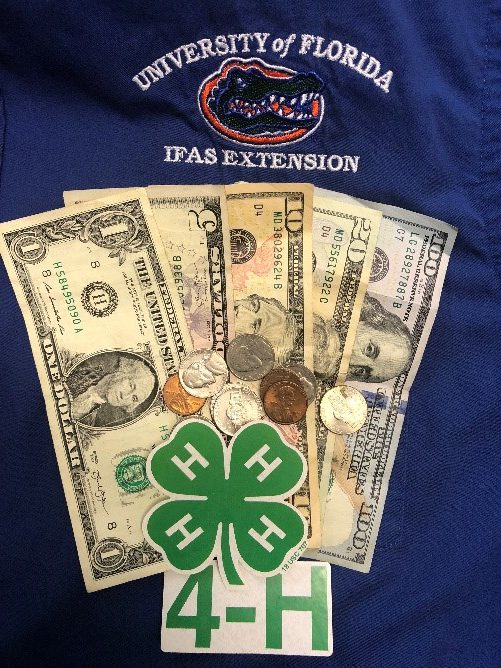
by pmdavis | Jan 10, 2020
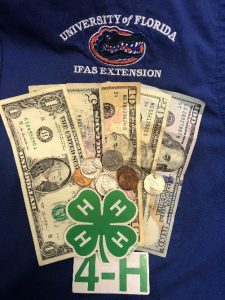
Are you financially savvy?
As a parent, I worry about children and their money habits! They often have trouble distinguishing between a need and a want. I often wonder if I am empowering them to be financially savvy. I know this is a topic that I continually work on for myself. It is important to start teaching healthy money habits early! It is also important for children to hear about personal finance to understand how money works in a variety of settings: home, school, and youth organizations. I know my children receive money as gifts and it tends to “burn a hole in their pocket” until it is gone. Like adults, children need to practice making “healthy financial” decisions so that those decisions become “healthy habits,” reducing stress in their lives.
With Valentine’s Day right around the corner, you might think of helping your children or grandchildren start a savings account to provide some financial security for the future. Then, encourage them to keep adding 10-20% of any money they receive to the account for a rainy day or that big purchase they desire.
RESOURCES AVAILABLE
Extension and 4-H have several publications and project books that provide guidance in the area of personal finance on spending, saving, investing, and donating. These projects can be done in a group setting or as a self-study project. National 4-H Curricula include “Financial Champions 1: Money FUNdamentals.” This piece has activities allowing kids to develop a money personality profile and style, understand the difference in needs and wants, make informed money decisions, set financial goals, and develop a money plan.
“Financial Champions 2: Money Moves” allows kids to learn how to predict outcomes and analyze their finances. They calculate interest; determine the cost of credit; learn how to manage a checking account, explore selecting financial services, make informed marketplace decisions and discover ways of handling money. National 4-H also has free curricula you can download for older youth.
UF/IFAS Extension also has free resources about money and financial management for adults and families on a wide range of topics such as Consumer Rights, Credit and DebtManagement, End of Life Issues, Finance and Family, Personal Finances Insurance, Retirement Planning, and Saving and Investing. University of Maryland 4-H also has a program called Financial Nuggets. This is a free download giving ideas on how to teach financial decision making to youth. It is designed for family involvement. Therefore families will increase their basic financial capacity and ability to make both short-and long-term decisions regarding spending and saving. It explores topics like needs verses wants, planning and managing money using a budget, how wealth is created and built, and managing risks.
Extension and 4-H want to encourage children, teens, and families to learn about personal finance, to practice what they learn and to teach others. We really want to get 4-H members and their families on the road to being money smart consumers. For more information on financial education and tools to help you become financially savvy or get out of debt, contact your local UF/IFAS County Extension Office, or visit http://florida4h.org. 4-H is one of the nation’s most diverse organizations and includes people from all economic, racial, social, political, and geographic categories. There are no barriers to participation by any young person. Participants are given the opportunity to engage in activities that hold their personal interest, while being guided by adult volunteers. If you are interested in volunteering, please contact your local office.
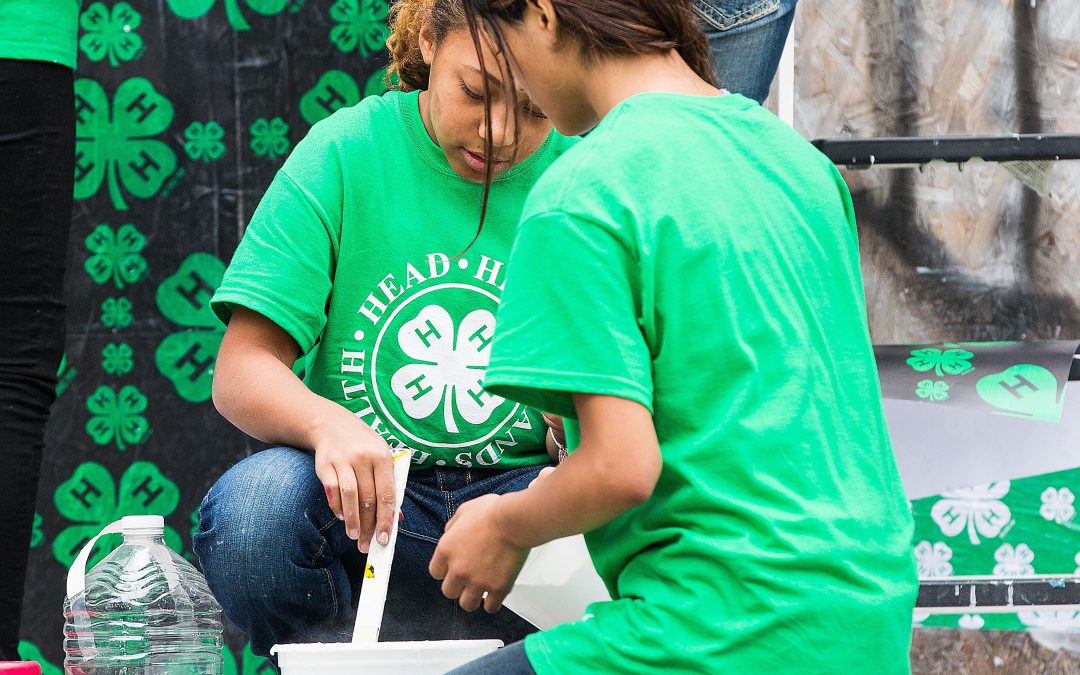
by Niki Crawson | Oct 10, 2019
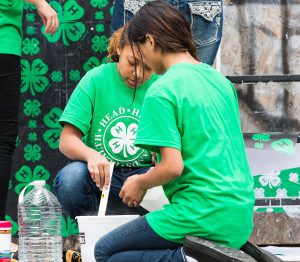 In continuing this week’s theme and celebration of National 4‑H Week, we want to highlight our last “H” in 4-H, Health. As the 4-H pledge states, I pledge my…health to better living.” Just living a healthy lifestyle in general is a huge endeavor for anyone to accomplish and it takes a lot of awareness of self to accomplish it well. As a 4-Her, not only are we committing to make healthy choices for our own mind, body, and spirit but we are also striving to make healthy choices and conduct ourselves in a manner that is healthy for our club, community, country, and world.
In continuing this week’s theme and celebration of National 4‑H Week, we want to highlight our last “H” in 4-H, Health. As the 4-H pledge states, I pledge my…health to better living.” Just living a healthy lifestyle in general is a huge endeavor for anyone to accomplish and it takes a lot of awareness of self to accomplish it well. As a 4-Her, not only are we committing to make healthy choices for our own mind, body, and spirit but we are also striving to make healthy choices and conduct ourselves in a manner that is healthy for our club, community, country, and world.
Our agents and volunteers do an amazing job in guiding and inspiring our 4-H youth to learn just how to be aware of and make decisions that lead to such healthy living. Through hands-on learning activities and the experiential learning model, these positive adult role models engage youth to challenge themselves and apply critical thinking skills in order to gain additional essential life skills that aid in balanced physical, mental and emotional health. From healthy living clubs to competitive events such as the Consumer Choices Contest to enrichment programs such as Health Rocks, 4-H brings real life situations and choices to the forefront and teaches youth to be empowered in their healthy decision making.
HEALTH FOR YOU, HEALTH FOR ME
Are you looking for certain areas to help inspire your children or neighborhood youth to make healthy decisions? Is there a particular area in the healthy living realm that you feel your children need some hands-on learning? The Northwest 4-H District have shared some wonderful publications over the recent years, highlighting varying aspects of 4-H Healthy Living. From inspiring youth and volunteers to helpful tips and resources, the articles below are short reads that give great overviews of the 4-H healthy living lifestyle.
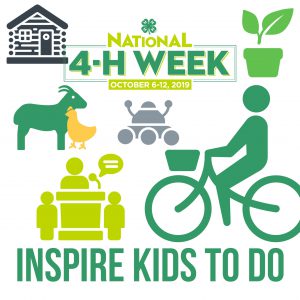
The Application of Healthy Living
Healthy Living Tips & Helpful Hints
Inspiring Healthy Reads
Would you like to become a volunteer that inspires youth to invest in their future? Visit your local UF IFAS County Extension Office and meet your 4-H Extension Agent for additional information on how to become a 4-H Volunteer today to inspire youth to make healthy decisions and conduct themselves in a manner that is healthy for their club, community, country, and world!
RESOURCES
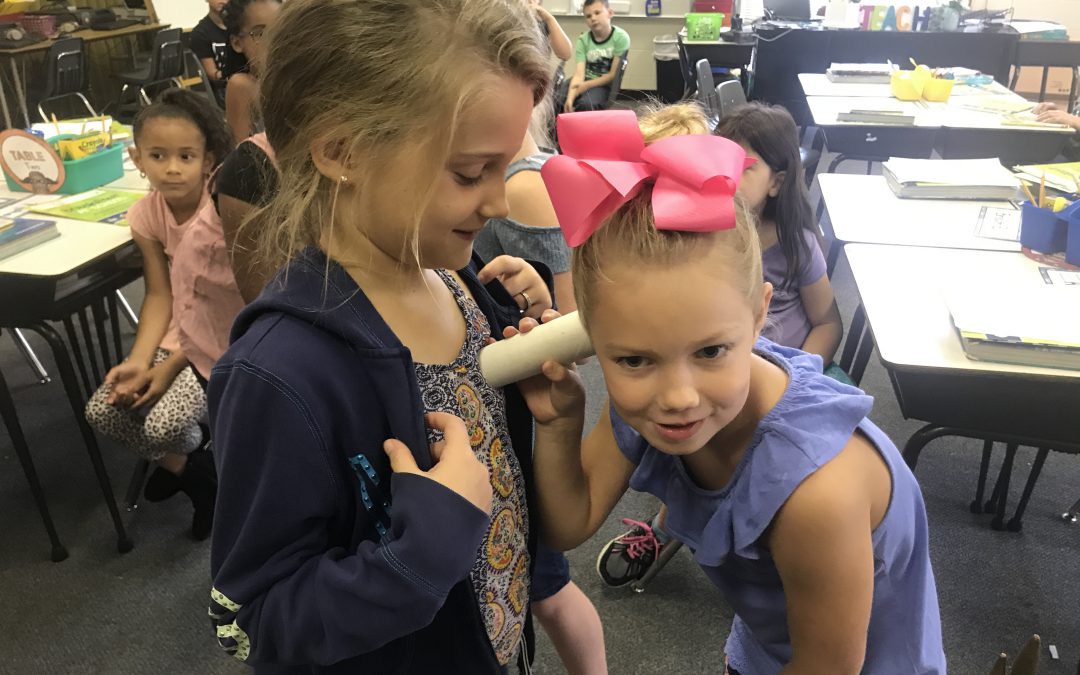
by Whitney Cherry | Oct 8, 2019
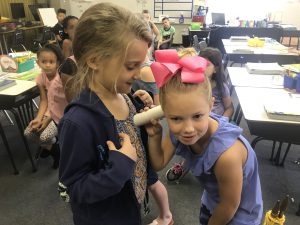
These young 4-H’ers are learning all that 4-H has to offer right in their schools through 4-H school clubs and school enrichment programs.
Heart is the second of the four H’s in the 4-H Pledge: head, HEART, hands and health. You can measure things of head, hands, and health, fairly simply. But to take the measure of a person’s heart is a little more tricky, and it is in my estimation, their truest measure. Your heart determines how you think, act, and respond to others. It’s the influence of your character.
In 4-H, we strive to give young people the opportunity to build character through a number of activities. Through service learning, we teach 4-Hers to consider others before themselves. Through democratic decision making, we teach them to be fair, even when it doesn’t mean equal. Through club membership, they learn loyalty. Through projects and fair entries, they learn patience with themselves and others. Through competition, how to be humble winners and gracious losers. And through awards and recognition, they learn the satisfaction of reaching a goal through hard work. We write thank you letters to learn gratitude. And above all, through teamwork, we teach that respect means being kind to others even when we don’t agree, and that all people deserve respect.
At a time when current events may leave us feeling discouraged, I encourage you to consider this instead. Just as a farmer’s fields of green inspire hope for a fruitful harvest, whenever I look out on my own fields of green – young people in 4-H shirts of course – ready to go to work for themselves or others, I too feel hope for a bright and promising future. These young people aren’t just learning to show hogs, shoot targets, sew, bake, or build a robot. They are learning to care about something larger than themselves. And that is, in fact, the promise of youth – which is exactly the stuff 4-H is made of.
For more information on how your family can learn more about 4-H, its enriching opportunities and the positive impacts made on young people, find your local UF IFAS Extension Office and contact your 4-H Agent to explore what 4-H programs are offered in your area.
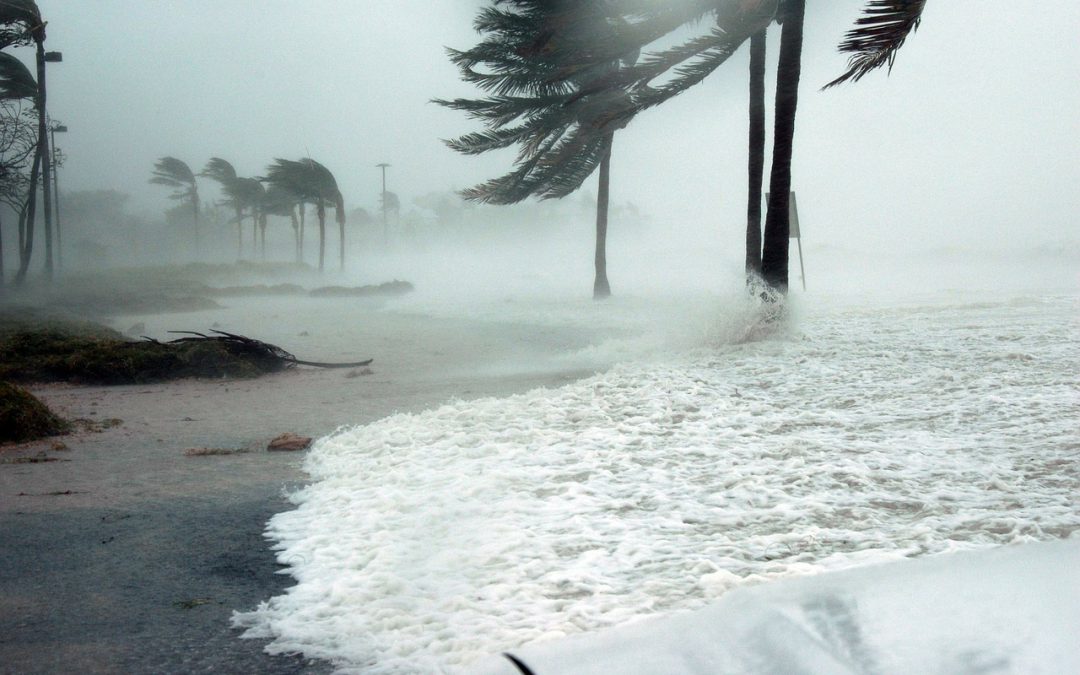
by Niki Crawson | Aug 30, 2019
 With the first real major storm of the 2019 hurricane season pressing down upon the entire state of Florida and the recent state of emergency declared on all 67 Florida counties by Governor DeSantis, it stands to reason that a lot of anxiety is spinning in the atmosphere along with Hurricane Dorian.
With the first real major storm of the 2019 hurricane season pressing down upon the entire state of Florida and the recent state of emergency declared on all 67 Florida counties by Governor DeSantis, it stands to reason that a lot of anxiety is spinning in the atmosphere along with Hurricane Dorian.
Many of us have experienced firsthand how a hurricane can disrupt our lives beyond something we could ever imagine. Some are still living in the disruption, trying desperately to find normalcy again. So, with the threat of Hurricane Dorian looming just a few days away, it is only natural for overwhelming feelings of anxiety, nervousness, and fear to kick in. You may begin to see these feelings develop among your family members, especially your children. It is important to recognize these emotions immediately and take action to help not only yourself but your children as well.
PREPARATION
Preparation is one of the most important ways you can regain control in your situation. In this case, preparation before Hurricane Dorian (or any future storms) will help reduce anxiety, eliminate any confusion among family members, and create clear communication for all. Here are some helpful tips for your family on how you can be prepared and reduce anxiety in the hurricane season:
- Have a family plan – Make it clear, keep it current, and know it well.
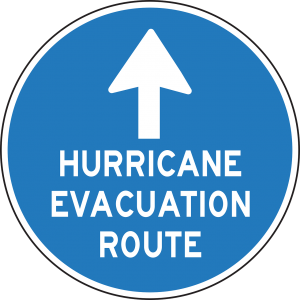
- Talk openly and honestly with your children about the weather situation – Make it a fun science experiment to explain hurricane patterns. Help them to understand how to track the path of the storm. Show them where to get accurate weather information like NOAA’s website.
- Give everyone a role and responsibility – Keep every person involved in the tasks and let them have ownership in getting the family prepared.
- Create your hurricane preparedness kits – Be sure to check out our information on building a disaster preparedness bucket here. Remember to include your pet’s needs.
- Share – Allow children to share feelings, concerns, stories of past experiences. Validate real concerns and allow children to come up with possible solutions or positive actions to alleviate those concerns.
We know that natural disasters can change our lives with little to no notice. Fortunately, Hurricane Dorian is giving you a little extra time to prepare if you have not already done so. Be proactive – take action now and reduce the anxiety level in your household as Dorian approaches. For the latest resources to help prepare and then deal with natural disasters such as Hurricane Dorian, the UF/IFAS Disaster Preparation & Recovery website offers some important information such as updated contacts, useful tips, and videos for you and your family.
We wish you and your loved ones safety this hurricane season. Be smart, be prepared, and be confident that you are prepared this season and beyond.
Visit your local UF IFAS County Extension Office and meet your 4-H Extension Agent for additional information on a variety of topics that can benefit you and your family. From 4-H educational activities to ways to keep your family safe, Extension and 4-H is always available to assist you and your family.
HELPFUL RESOURCES DURING A DISASTER

by pmdavis | Aug 9, 2019
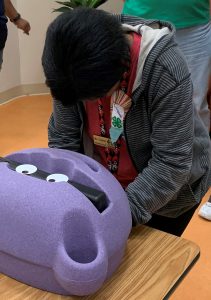
Looking for spots missed during hand washing by using black light and glow germ lotion that fluoresces under black light.
It’s hard to believe it is August already, with that we are getting ready to go back to school. Going back into the large group gathering requires a reminder to wash your hands often. You and your child will be around so many people and exposed to all kinds of germs. Regular hand washing helps you avoid getting sick and spreading your germs to others.
The CDC recommends that we wash our hands:
• Before, during, and after preparing food
• Before eating food
• Before and after caring for someone who is sick
• Before and after treating a cut or wound
• After using the toilet or after changing diapers or cleaning up a child who has used the toilet or been ill
• After blowing your nose, coughing, or sneezing,
• After touching an animal, animal/pet feed or treats, or animal waste
• After touching garbage
Take a moment to sit down and talk with your child about hand washing and the importance of washing their hands, especially when they get home from school.
Try this activity written by Tennessee 4-H to help youth see where they may be missing germs. This simple activity uses items you probably have in your kitchen. Begin by coating hands with a tablespoon of cooking oil. Next, sprinkle the oily hands with ground cinnamon. Have your child wash their hands using the steps outlined below. Once they have finished washing, have them smell their hands to see if they can still smell cinnamon. If they washed their hands correctly, the cinnamon smell and brown color should be gone from their hands.

A. Hands coated with cinnamon before hand washing
B. Quick wash like youth often do missing in between fingers, top of wrist, around nails
C. Thoroughly washed hands (all clean even between fingers)
Here are the steps we teach youth when they take our 4-H hand washing classes:
1. Wet your hands with clean, running water.
2. Apply soap and rub your hands together to make a lather. Make sure to get in between your fingers, under your nails, and on the top of your hands. Youth often miss these areas when we do a lesson on hand washing during 4-H events.
3. Scrub for at least 20 seconds—about the same amount of time needed to sing the Happy Birthday or ABC Song twice.
4. Finish by rinsing your hands with warm running water.
5. Dry hands with a clean towel or let air dry if a towel is not available.
6. Use the towel to turn off the water faucet to prevent re-contamination of your clean hands on a dirty faucet knob.
Have a fun and germ free day! 4-H is a family affair, offering many opportunities where both children and parents can participate in common interests. 4-H is one of the nation’s most diverse organizations and includes people from all economic, racial, social, political, and geographic categories. There are no barriers to participation by any young person. Participants are given the opportunity to engage in activities that hold their personal interest, while being guided by adult volunteers.
To find out more information about other 4-H programs like this or volunteer your time to work with youth, please contact your local UF IFAS County Extension Office.
by Allison Leo | Jul 26, 2019
Mindfulness is the act of creating awareness of your surroundings, emotions, and physical self in the present moment. It helps you connect to the world around you, while providing cognitive, social, and emotional benefits. Practicing mindfulness is not just for adults. Children can reap a multitude of benefits from learning and practicing mindfulness. Mindfulness equips children with the ability to adjust and deal with conflict encountered in their daily lives. It can also help children foster an optimistic outlook in life, react to stress in a healthy way, and develop a positive self-concept.
The practice of mindfulness is foreign to many adults, making it tricky to teach young children. The best thing to do is keep the message simple and model the behaviors you are teaching. Being taught by an adult that models mindful behaviors daily will assist kids in mastering the techniques. Below are a few mindfulness activities you can do at home as a family or in a group learning environment, such as a 4-H club meeting.
Zen Garden
A zen garden is a miniature landscape made with items such as moss,
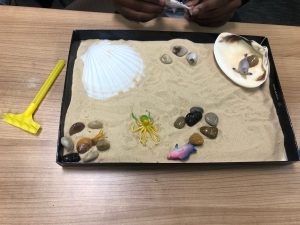
Zen garden created during Leon County 4-H Mindfulness Camp
rocks, and water features. Zen gardens are filled with sand and contain a small rake that you can use to create designs in the sand. The motion of raking the sand creates a sense of calmness. Zen gardens are often found on desks in the workplace because they are known for building focus and reducing stress. Building a zen garden is a fun and easy activity you can do with kids. Use a shoebox lid as the base and collect various stones and other items from outside to fill the box. Small rakes and sand can be purchased at a local craft store.
Mindful Safari
Taking a nature walk around your neighborhood or park is a simple way to exercise your mindfulness skills. Make it exciting by telling them you are going on a “mindfulness safari” and the goal is to see how many different birds, insects, and animals you can find on your journey. By searching for these items, you are fostering an awareness of the world around you. Similar to the mindful safari activity, you can take children on a “sound hunt.” This activity teaches kids to increase their awareness of the sounds in their environment. You can make the “sound hunt” more challenging by asking them to distinguish which sounds are close and which sounds are far.
Breathing
Breathing exercises are an important tool children can use to practice mindfulness. Learning how to control your breath and increase awareness of your breathing can help clear your mind in times of distress. You can practice breathing anywhere and no equipment is needed. Have kids sit on the floor or lie down. Instruct them to close their eye and take a huge breath in, filling up their lungs. Count to three and have them release. Breath activities can be completed sitting or lying down on your back. It is a good practice to have kids place their hands on their belly to feel the breath as it enters and leaves the body.
Mindful Eating
Mindful eating teaches children to understand when they are hungry and when they are full. It is important to eat without distractions, such as the television or your phone. Provide them with a variety of snack items. Ask them to look, listen, touch, smell, and taste the food in steps. They should pause after each step to reflect on what their senses are showing them about their food. First, look at what colors and shapes the item has. Next, listen to see if your food is making any sounds. Then, feel your food and describe the texture. Smell the item and define the scent. Finally, taste the food while paying attention to how the food feels and if the flavors change.
Yoga & Balancing
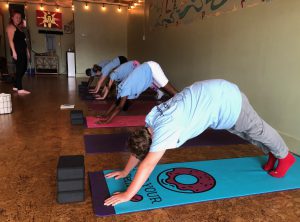
Practicing our “downward dog” pose during Leon County 4-H Mindfulness Camp.
Yoga is a great way to practice concentration, balance, and connection. Kids enjoy trying different yoga poses and stretches. A variety of free educational videos are available online that you can use to help guide you and your child through yoga sequences. Breathing techniques can be coupled with yoga and balancing. If kids do not have a yoga mat, a towel can be used. Practicing yoga shows kids that mindfulness does not always mean you are still or quiet.
Mindful Drawing
It is important to keep distractions to a minimum while drawing. This can be achieved by putting on relaxing music or simple sounds, such as rain falling or waves crashing. There are a variety of different drawing activities you can do with kids to practice mindfulness. If you have different sounds available, you can select a sound and instruct them to close their eyes and think of what that sound looks like to them. Then, have them open their eyes and draw what they heard. You can repeat this activity a few times with different sounds.
Body Appreciation
This activity works best in a group learning environment. Have kids break up into pairs and instruct them to take turns tracing each other on a large sheet of paper. Once everyone is finished, they will focus on their own bodies and write or draw what each body part does for them. For example, they can write “my head helps me think” or “my legs help me run.” Finally, they will write positive words on their body such as “I love to read.” This activity makes kids reflect on all the important ways their body helps them each day. It teaches them to appreciate and love their body.
Gratitude Journal
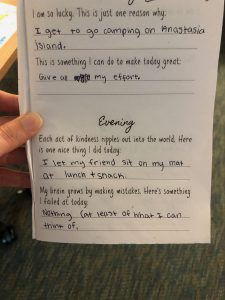
Gratitude Journals are a simple mindfulness activity kids can complete every day
When we feel and express gratitude to people in our lives, it creates loving connections, builds trust, and makes us feel joyful. Gratitude can be shown by giving someone a hug or telling them how much you appreciate them. Gratitude journals can easily be made at home or you can print off a pre-made template. This version is simple and is a great start for kids: https://researchparent.com/gratitude-journal-for-kids/
For more information on how your family can learn more healthy activities such as these mindful ones, find your local UF IFAS Extension Office and contact your 4-H Agent to explore what 4-H programs are offered in your area.















